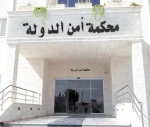You are here
Access to information; a requirement towards achieving sustainable development
Sep 30,2019 - Last updated at Sep 30,2019
By Anders Pedersen, Costanza Farina
On September 28, we celebrated a basic human right, the International Day for Universal Access to Information, a right that has long been considered a cornerstone of democracy and a driver of good governance and development, underpinning other human rights.
Access to information is not just a basic human right. It is a practical requirement towards achieving sustainable development objectives. For three years in a row, Jordan made great progress. According to the Press Freedom Index, Jordan improved its score to 43.24 in 2018 from 41.71 in the previous year. Yet, the Kingdom has suffered setbacks, with human rights organisations saying current laws and mechanisms can be further improved.
In 2007, Jordan was the first country in the Arab World to adopt a right to information law. Although this was an advantage, as Jordan opened up earlier than some Arab countries, it also presented challenges, as there was no regional model to follow or best practices to emulate. Despite showing strong leadership on this issue, Jordanian legislation lacks strength and implementation has been fragmented in the twelve years since its adoption. The government of Jordan has become aware of these issues. In November 2018, the government announced that it would prepare a new set of amendments designed to bring the law in line with international standards.
Access to information is critical. Without information, we are unable to make informed decisions. Following up the commitments made at the Mashreq Forum, the prime minister underlined the importance of closing the digital divide, necessary for improving access to information. Closing that divide calls for intellectual, political and financial investments in social practices and infrastructure, as it enables people to become active citizens. The foundations of knowledge and access to information is closely linked to capacity development, especially in targeting the most vulnerable, or those at risk, such as women and youth.
Access to information is most relevant within the 2030 Agenda for Sustainable Development, and with Sustainable Development Goal (SDG) target 16.10, which calls for ensuring public access to information and the protection of all fundamental freedoms so that no one is left behind.
UN agencies in Jordan have been on the frontlines of these issues and have advocated strongly for the right to access information. United Nations Education, Scientfic and Cultural Organisation (UNESCO) in particular has played a significant role, reinforcing the government’s commitment to access to information, improving implementation of the existing law, aiding in the drafting of amendments to the law, supporting civil society to defend and advocate for these rights and encouraging media actors to exercise their right to access to information.
In partnership with the EU, as part of the four year project (2014 – 2018) “Support to Media in Jordan”, UNESCO has engaged in creating awareness about the Access to Information Law amongst journalists and the media community, sensitised and trained information officials in government departments and public bodies on the implementation of the law, and created a pool of local master trainers who are able to carry on further training. Moreover, a training manual on how to properly implement the law has been designed and made available to the appointed information officers. UNESCO has also accessed international specialised expertise to carry out a detailed analysis of the law and has offered recommendations that can support amendments based on international standards.
We must acknowledge that today, many people continue to take information for granted, perhaps even seeking to conceal it. Yet, if we are to become autonomous and sovereign agents for knowledge societies and in order to spearhead sustainable development, then we must insist that citizens gain an appreciation of the importance of information and have the capacity to analyse this information.
Much work still needs to be done to make genuine access to information a reality for everyone, everywhere. If one requests information, one should expect to receive it in a timely and effective manner. Together we can make this possible as we strive for a world where we all have the power to make informed decisions, essential for realising sustainable development in which no one is left behind.
Anders Pedersen is the UN Resident and Humanitarian Coordinator in Jordan. Costanza Farina is the UNESCO Representative in Jordan. They contributed this article to The Jordan Times











